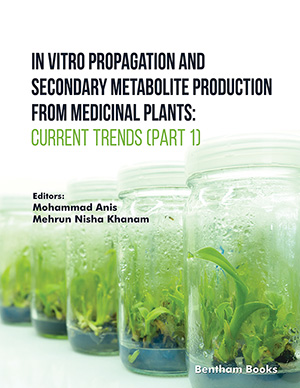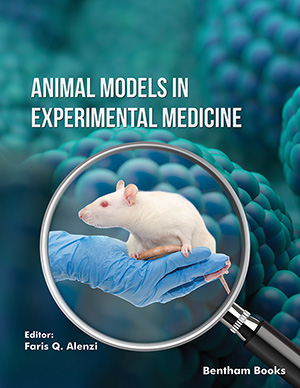Abstract
Malignant melanoma represents one of the most aggressive malignancies but outcome is highly variable with early tumor lesions having an excellent prognosis following resection. We review here the data on identification of genes involved in the progression of melanoma as a result of expression array studies, genomic profiling, and genetic models. We focus on the role of tumor suppressors involved in cell cycle function, DNA repair, and genome maintenance. Highlighted are the roles of loss of p16 in promoting neoplasia in cooperation with deregulated MAPK signaling, and the role of loss of the RASSF1A protein in promoting chromosomal instability. The interactions between point mutation in growth signaling molecules and epigenetic changes in genes involved in DNA repair and cell division are discussed.
Keywords: Melanoma, genetic progression, tumor suppressors, cell cycle, alkylating agents, mitotic spindle, mitotic spindle poisons
Current Genomics
Title: Molecular Markers of Tumor Progression in Melanoma
Volume: 10 Issue: 4
Author(s): Joshua Rother and Dan Jones
Affiliation:
Keywords: Melanoma, genetic progression, tumor suppressors, cell cycle, alkylating agents, mitotic spindle, mitotic spindle poisons
Abstract: Malignant melanoma represents one of the most aggressive malignancies but outcome is highly variable with early tumor lesions having an excellent prognosis following resection. We review here the data on identification of genes involved in the progression of melanoma as a result of expression array studies, genomic profiling, and genetic models. We focus on the role of tumor suppressors involved in cell cycle function, DNA repair, and genome maintenance. Highlighted are the roles of loss of p16 in promoting neoplasia in cooperation with deregulated MAPK signaling, and the role of loss of the RASSF1A protein in promoting chromosomal instability. The interactions between point mutation in growth signaling molecules and epigenetic changes in genes involved in DNA repair and cell division are discussed.
Export Options
About this article
Cite this article as:
Rother Joshua and Jones Dan, Molecular Markers of Tumor Progression in Melanoma, Current Genomics 2009; 10 (4) . https://dx.doi.org/10.2174/138920209788488526
| DOI https://dx.doi.org/10.2174/138920209788488526 |
Print ISSN 1389-2029 |
| Publisher Name Bentham Science Publisher |
Online ISSN 1875-5488 |
Call for Papers in Thematic Issues
Advanced Computational Algorithms and Artificial Intelligence in Clinical Pharmacogenomics
In the era of personalized medicine, understanding the relationship between genetics and drug response is crucial. This issue delves into innovative methodologies, leveraging deep computational analysis and artificial intelligence, to enhance the field of Clinical Pharmacogenomics. The interdisciplinary approach harnesses the power of advanced high-throughput genotyping technologies, sophisticated computational analysis, ...read more
Applications of Single-cell Sequencing Technology in Reproductive Medicine
Single cell sequencing (SCS) technology utilizes individual cells' genetic material to sequence their genome, transcriptome, and epigenetics at the molecular level. It offers insights into cell heterogeneity and enables the study of limited biological materials. Since its recognition as a valuable technique in 2011, single cell sequencing has yielded numerous ...read more
Big Data in Cancer Research
Cancer is a significant threat to human life and health, remaining a highly aggressive killer. It is a leading cause of death worldwide and represents a crucial medical issue for humanity. However, in the past decade, the effectiveness of new synthetic anticancer agents has not matched the current clinical speculation. ...read more
Current Genomics in Cardiovascular Research
Cardiovascular diseases are the main cause of death in the world, in recent years we have had important advances in the interaction between cardiovascular disease and genomics. In this Research Topic, we intend for researchers to present their results with a focus on basic, translational and clinical investigations associated with ...read more
Related Journals
 4
4
- Author Guidelines
- Graphical Abstracts
- Fabricating and Stating False Information
- Research Misconduct
- Post Publication Discussions and Corrections
- Publishing Ethics and Rectitude
- Increase Visibility of Your Article
- Archiving Policies
- Peer Review Workflow
- Order Your Article Before Print
- Promote Your Article
- Manuscript Transfer Facility
- Editorial Policies
- Allegations from Whistleblowers
- Announcements
Related Articles
-
Biotransformations of Prenylated Hop Flavonoids for Drug Discovery and Production
Current Drug Metabolism Gene and Cancer Therapy - Pseudorabies Virus: A Novel Research and Therapeutic Tool?
Current Gene Therapy Targeted Nanosystems to Prostate Cancer
Current Pharmaceutical Design Tumor-Derived Extracellular Fragments of Receptor Protein Tyrosine Phosphatases (RPTPs) as Cancer Molecular Diagnostic Tools
Anti-Cancer Agents in Medicinal Chemistry Light-at-Night-Induced Circadian Disruption, Cancer and Aging
Current Aging Science Blood-Brain-Barrier Models for the Investigation of Transporter- and Receptor-Mediated Amyloid-β Clearance in Alzheimers Disease
Current Alzheimer Research Functional and Molecular Ultrasound Imaging: Concepts and Contrast Agents
Current Medicinal Chemistry Liposome-Encapsulated Photosensitizers Against Bacteria
Recent Patents on Anti-Infective Drug Discovery Changes in the Expression of the Alzheimers Disease-Associated Presenilin Gene in Drosophila Heart Leads to Cardiac Dysfunction
Current Alzheimer Research Classical to Current Approach for Treatment of Psoriasis: A Review
Endocrine, Metabolic & Immune Disorders - Drug Targets Aflibercept: A Novel VEGF Targeted Agent to Explore the Future Perspectives of Anti-Angiogenic Therapy for the Treatment of Multiple Tumors
Mini-Reviews in Medicinal Chemistry In Vivo Biological Evaluation of Ethyl 4-(7-hydroxy-4-methyl-2-oxoquinolin-1- ylamino)-coumarin-3-carboxylate as an Antitumor Agent
Anti-Cancer Agents in Medicinal Chemistry Pentapeptides as Minimal Functional Units in Cell Biology and Immunology
Current Protein & Peptide Science Vaccine Adjuvants: Key Tools for Innovative Vaccine Design
Current Topics in Medicinal Chemistry Cancer Cell Cannibalism: A Primeval Option to Survive.
Current Molecular Medicine The Blood Brain Barrier, Mechanisms of Cerebral Edema, and the Use of Anti-Inflammatory and other Anti-Edema Agents in Neuro-Oncology
Anti-Inflammatory & Anti-Allergy Agents in Medicinal Chemistry Meet Our Associate Editor
Current Bioactive Compounds Anti-Tumor Effects of Osthole on Different Malignant Tissues: A Review of Molecular Mechanisms
Anti-Cancer Agents in Medicinal Chemistry Molecular Targets and Angiogenesis in Renal Cell Carcinoma, A Multitarget Approach: Mini Review
Current Drug Targets Antitubulinic effect of New Fluorazone Derivatives on Melanoma Cells
Anti-Cancer Agents in Medicinal Chemistry


























